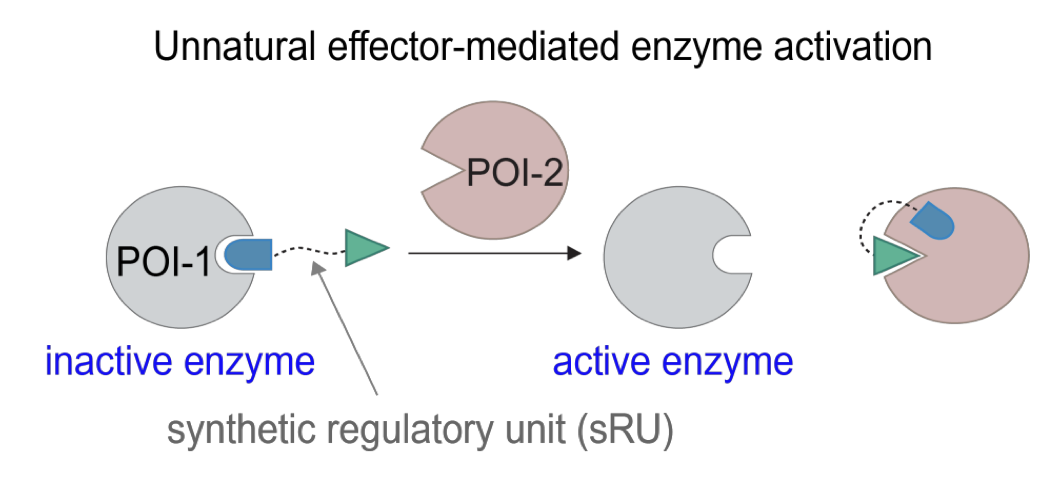Artificial protein crosstalk
In recent years, much interest has been devoted to developing artificially activated enzymes. The motivation for developing such systems lies in their potential applications across various research fields, such as sensing, artificial biology, catalyst development, and therapy. Inspired by the pivotal role that protein-protein interactions play in activating signaling enzymes, we have been developing a unique class of artificially triggered enzymes that respond to the binding of non-native protein partners. This unnatural activation mode, which imitates the way ligands or effectors activate enzymes, does not require that the protein scaffold constituting the unnaturally triggered enzymes be chemically or genetically modified. Instead, our approach is based on bifunctional chemical transducer (CT) molecules that possess binders for the enzyme of choice and an unnatural, activating protein partner. We have demonstrated that the CTs function as a synthetic regulatory unit (sRU) for enzymes, with potential applications in mediating unnatural prodrug activation by non-enzyme disease markers and in rewiring cell signaling pathways.

Selected relevant publications
- Angew. Chem. Int. Ed. 2024, 63, e202312461
- Chem. Sci., 2024, 15, 14209
- J. Am. Chem. Soc. 2015, 137, 95070
